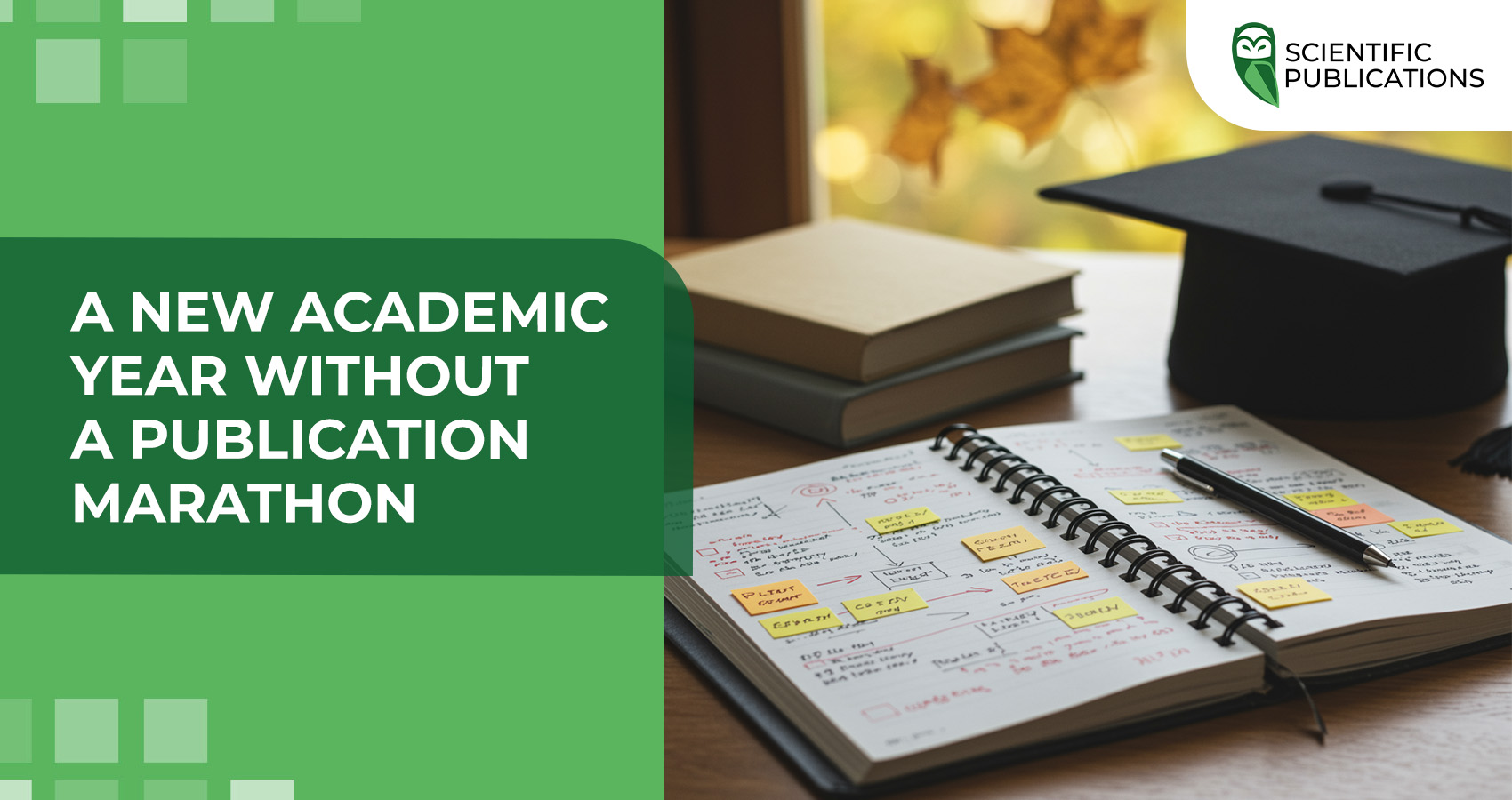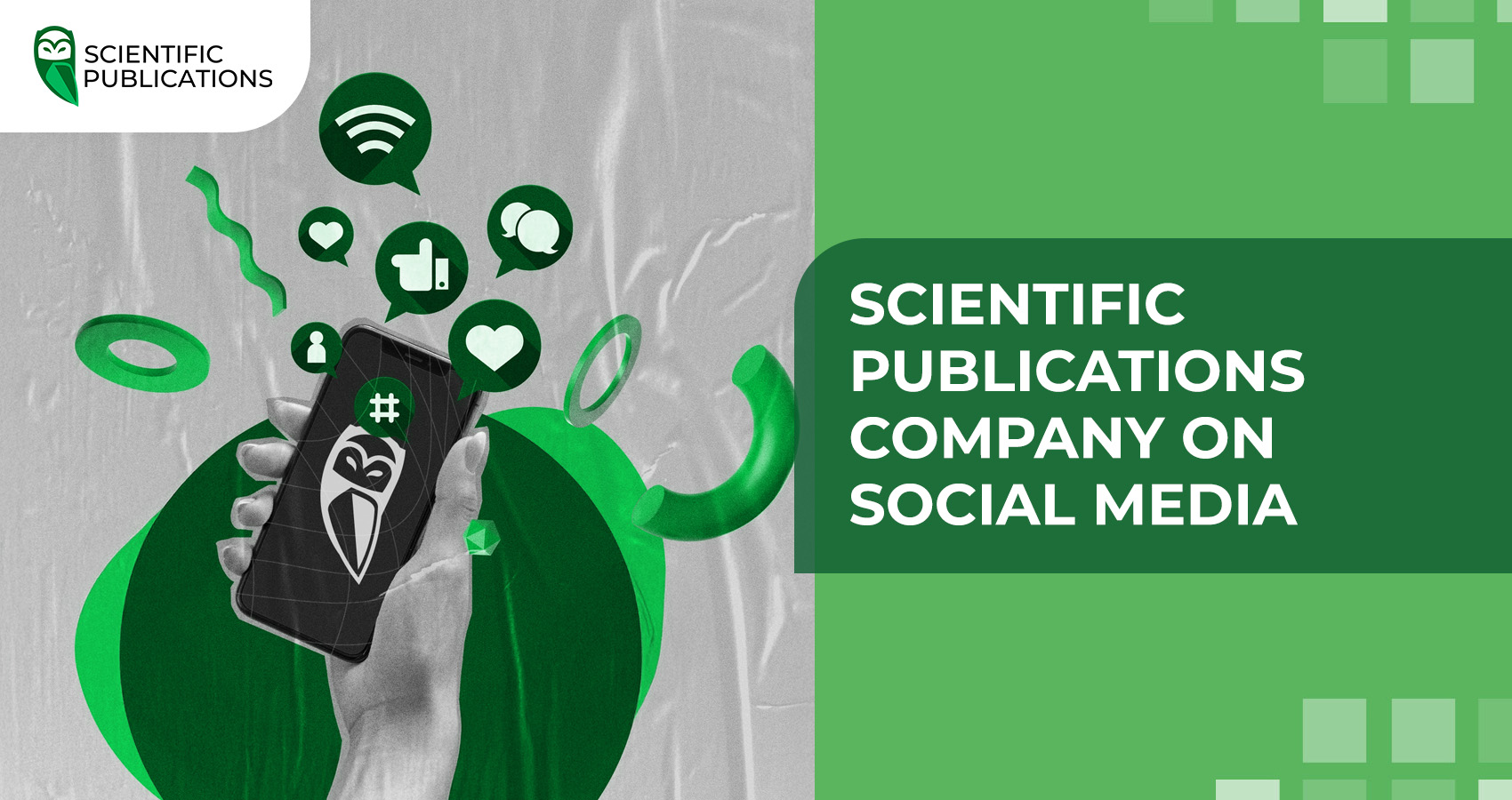With the start of the academic year, the workload on researchers increases significantly: giving lectures and seminars, checking papers, participating in events, preparing for new tasks and projects. At this pace, the first weeks fly by, and there is little time left for research. That is why it is worth thinking through your strategy and publication plan in advance.

In a scientist's publishing activities, timely writing and submission of articles is of key importance. Many publications work on a strict schedule or have a lengthy review process, which can sometimes take several months. A late start on an article can lead to missing deadlines and losing the chance to be published in the desired issue.
What is a publication plan and strategy?
A publication plan is a detailed ‘roadmap’ for a scientist that helps them systematically move towards their goals through clearly defined stages of work. It involves determining the research results to be published, selecting appropriate publications, setting deadlines and other key parameters. An effective plan should be long-term (e.g., two years) and consistent with the overall research strategy and personal scientific priorities.
A publication strategy is a comprehensive approach to the preparation, writing and placement of scientific materials, taking into account the subject of research, target audience, indexing requirements, reputation of publications and scientometric indicators. It provides a systematic vision of how to achieve professional goals, increase visibility in the scientific community, and gradually develop a career through stable and high-quality publication activity.
Careful preparation allows researchers to choose the publication that best suits the topic and level of research, as well as to effectively allocate time for writing, editing, and formatting the material. Advance planning allows you to adapt the article to specific standards and requirements, minimising the risk of delays during revisions. A clear publication strategy reduces stress and makes the publication process more predictable.
How to plan your publication activity effectively?
Start by analysing your own work and compiling a list of potential topics for articles. Write down all your ideas and research results, review completed, unpublished and current work. Identify key results that are ready or almost ready to be presented in the format of a scientific article.
Create a separate calendar with the dates for submitting materials to selected journals, as this will help you structure your preparation and submit manuscripts on time. Advance planning avoids rushing, improves the quality of your work, and increases the chances of it being accepted. In addition, a well-thought-out plan and strategy contribute to a harmonious combination of teaching duties, administrative work, and scientific research.
Waiting for a scientific article to be published: What to do?
In leading scientific journals that are indexed in well-known scientometric databases and cover current research topics, the number of manuscripts submitted often significantly exceeds the capacity for their rapid publication. As a result, even materials that have successfully passed peer review may end up in a ‘queue’ and be published only several months or even a year after official acceptance. The length of the wait depends on the specific journal and the database in which it is indexed.
For researchers who need to publish their results quickly, for example, as part of annual reporting, grant requirements, or preparation for a dissertation defence, such a delay can create significant difficulties. Advance planning helps reduce the risk of excessive delays in publication.
How to publish a scientific article by the end of the year without rushing?
It is entirely possible to submit an article and avoid unnecessary stress or delays in journals. By contacting Scientific Publications today, you can start the new academic year with confidence and without unnecessary worries. We will ensure that your research is published in a journal that best meets your scientific goals and requirements.
Leave a request on our website or fill out the form below. We will contact you for a completely free consultation, during which you can ask all your questions and discuss the details with our manager. Together to successful publication!





